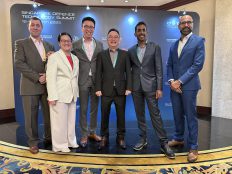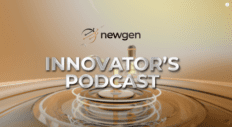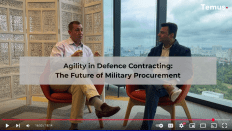- AI-Driven Efficiency – Generative AI eliminates time-consuming manual tasks, allowing consultants to focus on strategy and innovation.
- Deeper Insights, Faster – AI rapidly processes vast amounts of data, revealing patterns and connections that would take weeks for human teams.
- Beyond One-Time Projects – Consulting will shift from static reports to dynamic, AI-powered partnerships that evolve alongside client needs.
By Tessie Tan, Associate Director, Consulting & Design, Temus
Generative AI shakes the world, like an uncontrolled seismic event, for all industries across the board, and consultancy services are no exception.
As with the emergence of the Internet many years ago, generative AI has made knowledge even more accessible and actionable than ever before. Mundane tasks, once laboured with strenuous effort and lost in a black hole of time, now hurtle towards completion with surprising ease, forcing the consulting firms to reinvent themselves or risk obsolescence.
For buyers of consultancy services, this shift represents a unique opportunity: the ability to re-evaluate traditional approaches and seek consultants who truly add value in this digital age—moving beyond conventional models to embrace innovative, forward-thinking approaches.
The Traditional Consulting Model: A Legacy of Inefficiency
For decades, consulting services have adhered to a model that, while effective in the past, has significant shortcomings in today’s rapidly evolving landscape:
- Junior-Heavy Teams: Consulting projects often rely heavily on junior consultants, whose lack of direct experience undermines the firm’s promise of seasoned expertise as outlined in proposals. It is also observed that the quality of recommendations depends heavily on the capabilities of the junior consultants involved, given that most of the groundwork and heavy lifting is performed by these consultants, introducing inconsistency and potential blind spots due to their inexperience.
- Dependency on Static Knowledge Bases: Firms pride themselves on their “global expertise,” yet much of this knowledge is siloed or outdated. They often lack visibility into the origins of the referenced projects, the creators of these frameworks, or the unique nuances that contributed to their success. This disconnect creates a significant risk of merely copying and pasting knowledge, assuming it will work universally because it is marketed as a “tested and proven methodology.”
- Detached Senior Partners: Senior resources are often present only during final reviews, missing the rich context of earlier discussions, workshops, and interactions with the client. Despite this, they manage to convey a sense of authority and expertise, convincing clients that they are receiving top-tier insights. However, this can create a disconnect between the advice provided and the actual groundwork, leading to recommendations that might lack the depth and customisation required for successful implementation. Feedback from ground teams often highlights the difficulty of translating these recommendations into actionable, practical steps, underscoring the gap between theory and practice.
- Inefficient Processes: Consultancy services often charge based on the time consultants spend, especially in time-and-materials models. However, a significant portion of this time is consumed by low-value, “plumbing” tasks such as minute-taking, transcribing interviews, and formatting slides. The time that clients pay for should instead be directed towards higher-value activities—strategic insights, actionable solutions, and expert analysis—to ensure they receive meaningful and justifiable returns on their investment.
- Subjective Client Interactions: Interviews and workshops, while valuable, are shaped by human biases. Critical insights are often selectively omitted or lost in translation, sometimes without clients even realising it. Clients may withhold information they feel reflects poorly on them, leading to discrepancies between what is captured and the reality on the ground. Additionally, it is not uncommon for stakeholders retract previous statements when reviewing meeting minutes or report findings. Without verbatim transcriptions or recordings that can be easily referenced, consultants are often compelled to cede to such revisions, ultimately influencing the accuracy and reliability of the findings.
Generative AI will give conventional consulting model a run for its money. No longer will clients settle for pretty slides that quickly lose relevance. Instead, they will seek consulting partners who embrace leading-edge technology to deliver continuous evolution, rather than one-and-done transactional projects, and more.
Tessie Tan
Associate Director, Consulting & Design, Temus
The Future of Consulting: Powered by Generative AI
Consulting is undergoing a radical transformation, driven by Generative AI’s ability to enhance efficiency and insight. It also raises the bar in precision, and scales and adapts like never before. Here’s how consulting will evolve:
- Seamless Knowledge Integration: AI-powered platforms can effortlessly ingest and organise vast amounts of material – interview recordings, SOPs, research reports, and more – into a dynamic knowledge base. This ensures a consistent, holistic understanding of the client’s needs and challenges.
- Accelerated Analysis: Rapidly, generative AI sifts through and processes data, hastening the revelation of patterns as well as insights that would be the labour of weeks for human teams to discern. With AI, cross-referencing past findings becomes automatic, minimising oversight and enabling consultants to “connect the dots” with unparalleled speed.
- Expert-Driven AI Utilisation: Clients are going to see the value in investing their money into someone’s genuine proficiency – not in repetitive manual tasks, but in defining the parameters of the consultancy studies and coming up with effective prompts that would take full advantage of AI capabilities. Consultants will focus on curating and guiding AI rather than compiling static reports.
- Dynamic Recommendations and Long-Term Value Creation: AI-powered systems can extend beyond project completion, offering ongoing monitoring and insights. As fresh data surfaces, clients can receive timely updates, prompting them to re-evaluate and adapt rather than clinging on to outdated slides. This turns consulting engagements into active and dynamic partnerships, where solutions evolve alongside the client’s environment.
From Traditional to Bold and Forward-Thinking
Generative AI will give conventional consulting model a run for its money. No longer will clients settle for pretty slides that quickly lose relevance. Instead, they will seek consulting partners who embrace leading-edge technology to deliver:
- Accelerated, more precise results.
- Continuous evolution, rather than one-and-done transactional projects.
- Provide true expertise by harnessing AI’s potential for sustainable translation to value.
At Temus, we’re not just keeping pace with this transformation – we’re leading it. By leveraging AI to augment human expertise, we’re reimagining what consulting can be: smarter, faster, and relentlessly relevant.
As organisations navigate this brave new world, the question is no longer whether to embrace AI, but how quickly they can adapt. Choosing the right consulting partner – one that continues to re-invent itself to combine cutting-edge technology with deep expertise – will make all the difference. Let’s redefine consulting together—by challenging old paradigms, leveraging AI to create a more intelligent, adaptive, and value-driven approach for the future.




